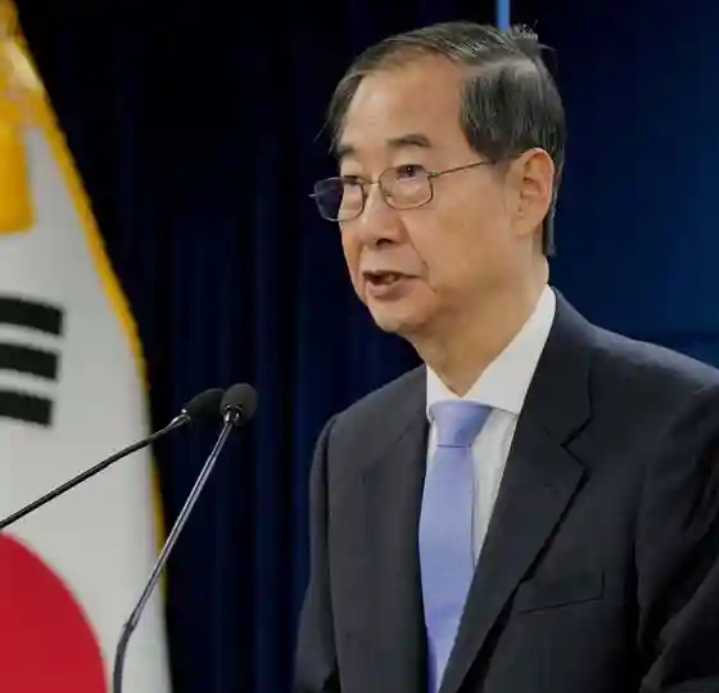South Korea’s acting president, Han Duck-soo, resigned amid presidential campaign plans. His brief tenure was marked by political conflict. Meanwhile, the Supreme Court’s reversal of Lee Jae-myung’s acquittal raises doubts about his eligibility for the June 3 election.
South Korea’s Acting President Han Duck-soo Resigns Amid Presidential Bid


The acting president of South Korea, Han Duck-soo, announced his resignation on Thursday. This move comes amid reports suggesting that Han is eyeing the presidency, with South Korean media indicating that he will launch his presidential campaign on Friday.
Han is viewed as a potential conservative candidate, especially in the wake of turmoil within the main conservative People Power Party. This unrest follows the controversial imposition of martial law by then-President Yoon Suk Yeol in December 2024, which has left the party in disarray.
In a televised briefing on Thursday, Han explained his decision to step down, stating that he had "finally determined to put down my post to do what I can and what I have to help overcome the crises facing us." He added, "I have two paths ahead of me. One is completing the heavy responsibility that I handle now. The other is putting down that responsibility and taking a heavier responsibility."
Under South Korean law, Finance Minister Choi Sang-mok will assume the role of acting president in Han's absence.
Han was appointed as acting president following the opposition-controlled parliament's impeachment of President Yoon, which paved the way for the upcoming snap presidential election, scheduled for June 3. However, Han's tenure was short-lived, as he was himself impeached after just under two weeks in office. The opposition accused him of failing to block Yoon's martial law declaration. Han was reinstated in March when a court dismissed the impeachment decision.
His tenure also saw conflicts with the opposition over his refusal to appoint three new justices to the Constitutional Court and his lack of support for bills targeting President Yoon and his wife, Kim Keon Hee.
In another major legal development, South Korea's Supreme Court on Thursday overturned a lower court's acquittal of Democratic Party presidential frontrunner Lee Jae-myung on charges of violating election laws. The Supreme Court's ruling now raises questions about Lee's eligibility to run for president.
In March, an appeals court had cleared Lee of the charges related to false statements made during a previous campaign, with the court stating that the case against him was politically motivated and that he had been fully vindicated. However, if the lower court now finds Lee guilty, he could be disqualified from running for office for five years and may even face a prison sentence. While Lee has the option to appeal, experts believe that the matter is unlikely to be resolved before the June 3 election.

 বাংলা
বাংলা  Spanish
Spanish  Arabic
Arabic  French
French  Chinese
Chinese 
